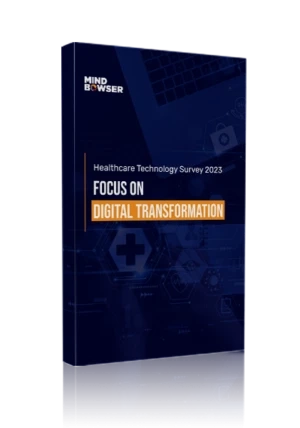The performance of almost all sectors is significantly impacted by digital transformation, and healthcare is no exception. Today, it is crucial for the healthcare sector to offer improved patient care digitally, wherever the patient may be.
Generally speaking, the adoption of cutting-edge technologies to enhance hospital worker productivity and elevate patient care to a whole new level is what digital transformation in the healthcare market is all about. The first part of this article discusses the many benefits and challenges of this merger between technology and healthcare.
Case Studies of Successful Digital Transformation in Healthcare
Here are some examples of successful implementation of technology by healthcare organizations. Along with the success stories, the following section briefly describes the lessons they learned in the process.
Mayo Clinic Mayo Clinic recently adopted several digital technologies, such as mobile apps, telemedicine, and electronic health records. During transitioning into a telemedicine platform, Mayo Clinic discovered and recognized the value of innovation and continuous development, among other things.
To ensure that digital tools meet the requirements of patients and healthcare professionals, they have discovered that it is crucial to assess and improve them continuously. They also stress the value of flexibility, adaptability, and the willingness to change course when necessary in light of feedback and statistics (MayoClinic).
Geisinger Health System Geisinger Health System has implemented several digital technologies, such as data analytics, recording, and ensuring data security. During the implementation process, they stumbled upon the importance of governing data and the requirement to guarantee that the data used is true, full, and secure.
Another important lesson they learned is that it was important to give healthcare professionals the required training in modern technology and to teach patients how to use digital tools to control their health to ensure standardization and accessibility.
Kaiser Permanente This healthcare organization has acquired various which helped them understand the value of incorporating digital tools into current routines and procedures. While the benefits of digital transformation exist, they also realized that it is pivotal to ensure new technologies are simple to use and do not interfere with current processes because doing so may lead to resistance among healthcare professionals. For all patients to profit from digital tools, they also stress the importance of ensuring they are inclusive and accessible.
These healthcare companies have discovered that a strategic methodology, powerful leadership, and a dedication to continuous innovation and improvement are necessary for successful digital transformation. In addition, involving stakeholders, assuring data security and accuracy, and integrating new technologies into established workflows and processes have also been emphasized.
Future of Digital Transformation in Healthcare
Digital change in healthcare has a bright and exciting future. As clear by the discussions in the first part of this article, the current technological advancement would benefit healthcare companies greatly with the enhancement of patient care, effectiveness in operations, and other analyses. The use of telehealth and virtual care are two revolutionary advancements that will continue to break down walls in the existing healthcare sector.
The COVID-19 pandemic hastened telehealth adoption, and this pattern is anticipated to hold in the upcoming years. As a result, patients can receive care through telehealth and virtual care from the convenience of their homes, increasing access to care and lowering healthcare expenses.
Machine Learning and Artificial Intelligence are other promising technologies that are following suit. Healthcare groups can use these technologies to analyze massive amounts of data and identify trends that can supplement making more informed decisions regarding workflows, predictions, and other activities.
Blockchain technology can facilitate data exchange between healthcare organizations while also helping to safeguard medical records and protect patient privacy. Last but not least, real-time patient data collection will be accomplished by wearable technology and sensors as part of the digital revolution of healthcare.
The patient’s health can be tracked using this data, and possible health problems can be found before they get out of hand. Overall, digital transformation in healthcare has a promising future and has the power to completely change how we handle patient care, disease prevention, and operational aspects of the industry (Deloitte).
Conclusion
A modern, more efficient, and automated health service system can be created by utilizing innovative solutions and digital technologies in the healthcare sector in the future years.
The article describes how crucial it is for medical facilities to keep up with and adopt the most recent trends in digital healthcare. It is time for you and your healthcare organization to take up this beautiful digital transformation journey and use its many benefits.
To learn more about the current state and future of healthcare technology adoption, download our Healthcare Technology Survey Report 2023.
Click here to download.


